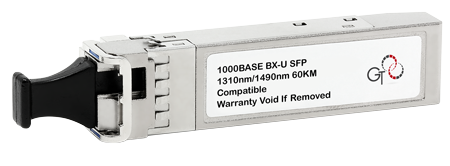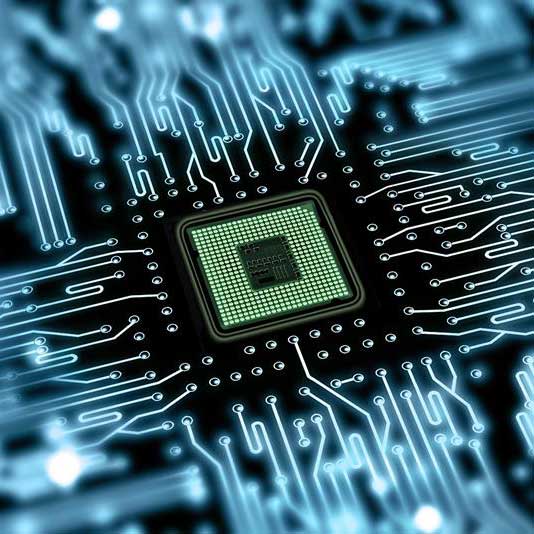Making the transition to higher bandwidth affordable
Single-fiber Bidirectional Transceivers
An Introduction to BiDi Transceivers

In the world of transceivers, BiDi stands for Bi-Directional. In terms of SFPs, BiDi transceivers transmit at one wavelength and receive at another. This is different from standard transceivers which use the same wavelength for transmit and receive. BiDi SFPs connect to a fiber cable using only one simplex port, whereas standard transceivers have duplex fiber ports.
How Bidirectional Transceivers Work
BiDi modules enable two-way communication over a single optical fiber by using a WDM (wavelength-division multiplexing) filter component in the transceiver. BiDi transceivers transmit optical signals at one wavelength and receive them at a different wavelength, allowing for bi-directional transmission. For instance, BiDi transceiver A in the figure transmits 1310nm wavelength signals and receives 1490nm wavelength signals, while BiDi transceiver B does the opposite. BiDi transceivers must be used in pairs due to this configuration – identifying as an Upstream (U) and Downstream (D) to the connection.
BiDi Advantages
Reducing Fiber and Expenses
Flexibility in Applications
Ease of Management
Different versions of SFP BiDi Transceivers
SFP BiDi Transceivers
SFP BiDi transceivers are specifically intended for deploying 1.25 Gigabit Ethernet networks. Typically, short to medium-distance BiDi networks spanning 10km to 40km use a wavelength combination of 1310nm/1490nm, while long-haul BiDi SFP applications spanning 80km to 120km usually employ a wavelength combination of 1490nm/1550nm.
SFP+ BiDi Transceivers
SFP+ BiDi transceivers are specifically engineered to support 10 Gigabit Ethernet deployments. The most commonly used wavelength combination for 10G SFP+ BiDi transceivers is 1270nm/1330nm, which is employed for short to medium-distance optical fiber transmission spanning 10km to 60km. Conversely, a wavelength combination of 1490nm/1550nm is used for long-haul BiDi SFP+ applications spanning 80km to 100km.
SFP28 BiDi Transceivers
The 25G BIDI SFP28 transceivers are designed to enable bi-directional 25G serial optical data communications using either 1270nm/1330nm wavelengths. These modules are ideal for use in 25G Ethernet and CPRI applications, particularly within 5G mobile networks.
SFP BiDi Transceivers in Action
SFP+ BiDi Switch to Switch
Switch
Switch
SFP28 5G Core Network to Field Terminal
5G Core Network
Hi-Band 5G NR
Low Band 5G LTE+NR
Why use GigaTech Products BiDi Solutions
At GigaTech, you can find a wide variety of BiDi transceivers that are designed to meet and exceed industry standards. Our transceiver solutions are not only reliable but also cost-effective and flexible, providing you with the ability to make necessary changes and accommodate network growth with ease. Our transceivers are tested to ensure they perform at the highest possible level and are designed to work seamlessly with your existing network infrastructure. You can trust GigaTech to provide you with transceiver solutions that will meet your needs now and in the future.

Never Sourced. Never Recycled.
All components in GigaTech Product optics are manufactured under the same roof and represent the gold standard for reliability and consistency in performance. This vertical manufacture chain allows GigaTech to avoid unnecessary variances in transceiver casing or laser quality often found with online resellers who source their components from an ever changing vendor list. The transceiver is guaranteed to be built from A-Stock never used components overseen by GigaTech Products,
Rigorous Testing & Standards Compliance
The quality and standards of our hardware is one the base foundations of GigaTech Products. All of our components comply with MSA (Multi-Source Agreement) output standards and, in many cases, excel beyond those certification standards. Every transceiver we produce is tested on active network devices to ensure they comply with OEM equipment and are verified to be plug-and-play and do not require work arounds.
